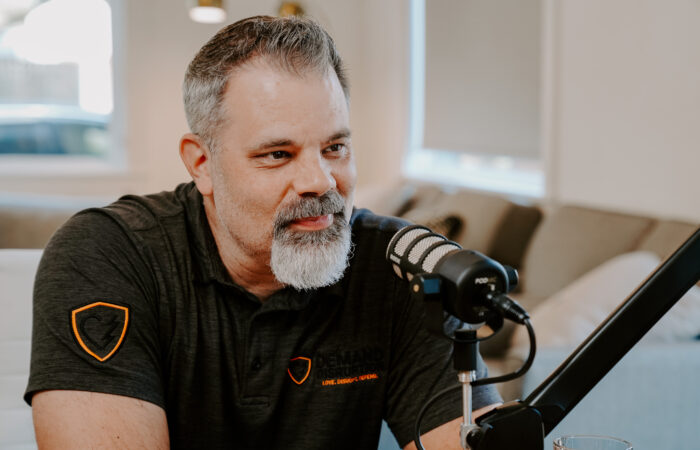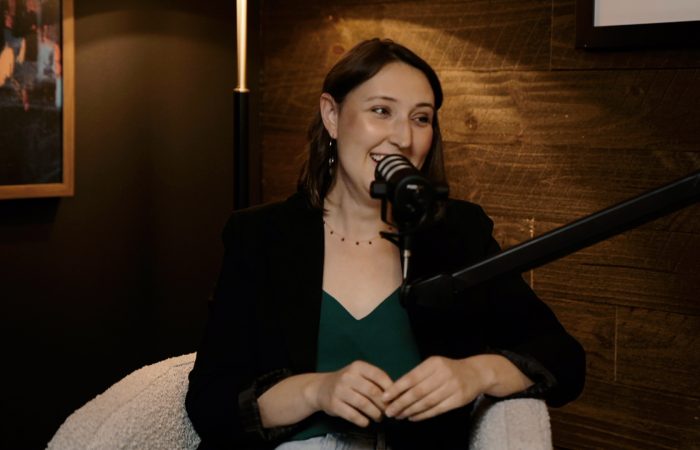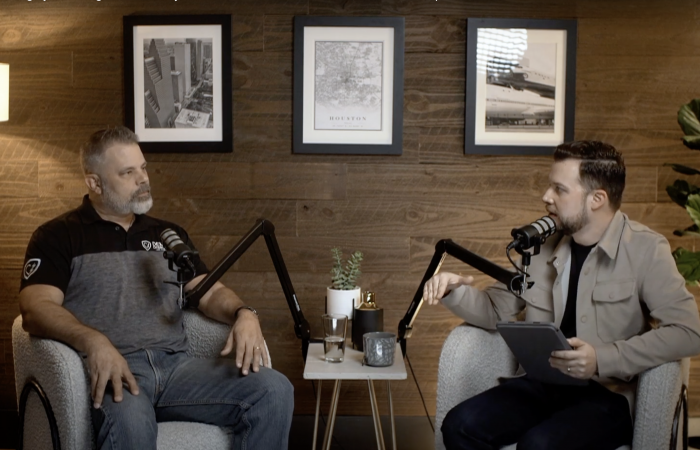As I type this our nation is celebrating Women’s History Month. This month and the memorialization of it can easily become another marker on the calendar, something to fill our screens for a brief moment and pass away. Today, however, I pray that we are slowed enough to absorb some of the stories we’ll attempt to tell over these next few weeks. Stories of women single and married, young and old, educated and uneducated, who all embodied the Spirit of the Father through their actions.
These women were heroes of the faith, embodying courage, strength, boldness, Truth, and released a clear message for their generation. A message we can learn from today. Again, I pray you are stirred to learn more, for our introduction to them is but a whisper of their stories that will be told for eternity.
Josephine Butler – 1828-1906
First, we must understand the context of this reformer, Mrs. Butler. Josephine was raised in the height of the Victorian era. Sex, and especially prostitution (trafficking), was hardly a topic of conversation amongst “polite society”. Nevertheless, Josephine was exposed to the foundations of justice God deemed necessary for her future ministry. Her father worked alongside the Wilberforce initiative on the abolition of the slave trade, her family had ties to the Moravians, a religious group famous for their sacrificial missions and robust prayer lives, and she was exposed to the brutality toward the poor in England which strongly shaped her worldview.
Josephine married a young George Butler and according to him they often, “prayed together that a holy revolution might come about and that the Kingdom of God might be established on the earth” (Butler, 1982).
Upon the tragic death of her daughter at age 6, in an effort to not lose herself in despair, Josephine threw herself into serving the poor. She began crusading for the rights of those in the workhouse, then stumbled into the revelation that women and children were being sold for sex right under her nose in London, Oxford, and many other England cities.
Once alerted to this reality her tireless efforts began a multi-decade campaign for the needs of these “fallen women”. She began by housing and serving women who had been groomed, manipulated, and abandoned in prostitution, ruined for any possibility of an occupation or a family and utterly hopeless. Public services did not exist for these women and the church was largely silent on this issue.
“I know that when I speak of what I myself have done, I am only recording what other ladies have done with yet greater devotion. I have but one little spare bedroom in my house. Into that little room I have received, with my husband’s joyful consent, one after another of these my fallen sisters; we have given to them in the hour of trouble, sickness, and death, the best that our house could afford, and requested friends of a higher rank who visited us to go to a neighboring hotel. In that little room I have nursed poor outcasts filled with disease, and have loved them as if they had been my own sisters. Many have died in my arms. We afterwards hired a little house into which we received others who came. Not far from us there is a cemetery, in a sunny corner of which there stands a row of humble graves beneath which lie the earthly remains of these our children, fallen women, prostitutes, if you like to call them so, but now resting on the bosom of that Saviour who came to seek and save that which was lost. For every one of these departed in good hope and joyfully, having found – besides the deeper peace-the treasure of a pure friendship before they died…” -Josephine Butler (Stead & Butler, 1889).
What made this woman such a force against injustice? The answer lies in her inner life, “hidden with Christ in God,” Writing of her spiritual disciplines Rod Garner says, “Josephine gave herself over to prayer as a passionate and loving form of attention both to God as the ultimate spiritual force and source of righteousness beyond herself and to the concerns that distressed her soul. The hours of intercession made for some mysterious alchemy within her: the divine spark fanned into flame, her strength increased and her vision encompassed the wrongs that to others appeared invisible” (Garner, 2009).
As one colleague said about her first meeting with Butler, “I shall not forget the sacred influences of that interview till we meet again in the other world. Her presence, her manner, her open Bible on the desk before her, all betokened that we had had the privilege of an interview with one who lived near to God, in holy converse with Him. As we drove away in the cab we uttered not a syllable to each other, to break the sense of the Divine Presence that we had brought away from her” (Dr. Katherine Bushnell a Brief Sketch Of Her Life’s Work, n.d.)
Butler’s life exemplified the passage that says, “Cry aloud, spare not, lift up thy voice like a trumpet, and show my people their transgression, and the house of Jacob their sins” (Isaiah 58:1, ESV, n.d.). Her continual proclamation of justice and righteousness reverberated throughout the decades while she lived and continues with us today.
“Immense as is the task before us, nothing shall ever shatter our faith. The justice of our cause is our surety of success.” – Josephine Butler (Butler, 1913).
The Contagious Diseases Act: A 20 Year Battle
During her advocacy for prostituted women, a law called The Contagious Diseases Act was passed to combat the influx of venereal diseases (VD) in the armed forces on the recommendation of the War Office and military doctors. Women known to be in prostitution – or even suspected of being in prostitution – were arrested and tested for venereal disease. If they were positive, they were confined in lock hospitals until cured. They could only be released from the lock hospital with a “certificate of soundness,” and only then, back into prostitution.
The Contagious Diseases Act not only assumed that prostitution was a permanent and necessary evil but also exonerated the men from any social, moral, or financial repercussions.
They condoned male sexual access to “fallen women” and were specifically directed at women in order to protect the health of men. If the priority had truly been to fight VD, then inspecting the men would also have been required by the Act. However, the assumption was that, while men would be offended at the intrusion, the women were already so degraded that further humiliations were of no consequence.
The ability to visit women in prostitution, without perceived moral, physical, or financial repercussions, was a lure for new recruits to the British military. Blue lamps outside “houses of ill fame” meant they only serviced officers, red lamps serviced all others. Lines would form outside of the red lamp brothels, numbering in the hundreds, especially before active service.
Josephine Butler’s Call to the Church
The Victorian era was a time of many contradictions. Victorian morality espoused sexual restraint and a strict code of social conduct. Despite the front of dignity and refinement, prostitution was a widespread social phenomenon.
Josephine Butler had little patience for the charade of morality. She was constantly issuing a call to the Church to awaken to the plight of women and children trapped in prostitution.
“This evil is a moral one and can only be met by moral and spiritual forces; nothing else will produce anything more than an apparent and superficial improvement, which would also only be temporary. We need a great revival of spiritual life and we need armies of people (men as well as women) to take to heart and take in hand the reformation of their own cities.” – Josephine Butler (Virtue – Butler3 – Speaking While Female Speech Bank, 2020).
“The sound of the trumpet which calls to battle is not perfect; all that is wanted is that its summons shall be sufficiently piercing to hasten the fighters into the field. So as soon as they are there, the struggle will begin along the whole line. Then will be the moment to bring up the heavy artillery and the great battalions, to destroy the enemy’s works, to push him to his last entrenchment, to leave him no single road of escape. All that has been wanted until now has been a voice to give the signal.” – Josephine Butler (Butler, 1913).
The Battle Won
Josephine Butler fought the CD Act through her purity crusades and written materials, both of which were hotly contested by pimps, johns, brothel keepers, even clergy and polite society. Her crusades incited mob rioting, and she was frequently harassed, mobbed, stoned and chased out of town. The CD Act was finally repealed in 1886 after Butler’s long and arduous battle on the crusade circuit. This single victory extinguished the robust government-endorsed sex trade not just in England but across the British colonies. Josephine Butler and those with her may have done more for releasing the manifestation of the kingdom of God to trafficked individuals on earth as it is in heaven than any other person or group in history.
The Legacy Continued
Josephine’s story does not end there, however. During her socially radical lifetime of seeking justice she was noted as raising up many other abolitionists, several of whom reached multitudes, paved the way for the development of safehomes across all continents, and witnessed the gospel going forth in power.
We owe her a tremendous debt of gratitude and so today, we remember Josephine and honor her sacrifice. A life truly laid down in service of the orphan, the widow, the poor, and the outcast, those for whom a banqueting table has been laid. Those who are part of the great cloud of witnesses now cheering on you and I, the current abolitionists. I pray we honor their legacy and sacrifice by staying tethered to the Vine and lay down our lives in the same measure.
References:
- Butler, J. E. G. (1890). Recollections of George Butler: 2d Ed.
- Garner, R. (2009). Josephine Butler: A Guide to Her Life, Faith and Social Action. Darton Longman & Todd.
- Isaiah 58 ESV. (n.d.). https://biblehub.com/esv/isaiah/58.htm
- Stead, W. T., & Butler, J. (1889). Josephine Butler.
- Dr. Katherine Bushnell A Brief Sketch of her Life’s Work. (n.d.). godswordtowomen.org. Retrieved March 7, 2023, from https://godswordtowomen.org/bushnell_brief_sketch.pdf
- Butler, J. E. G. (ca. 1913). The voice of one crying in the wilderness: being her first appeal, made in 1874-5, to continental nations against the system of regulated vice (1st ed.) [Book].Virtue – Butler3 – Speaking While Female Speech Bank. (2020, August 25). Speaking While Female Speech Bank. https://speakingwhilefemale.co/virtue-butler3/





